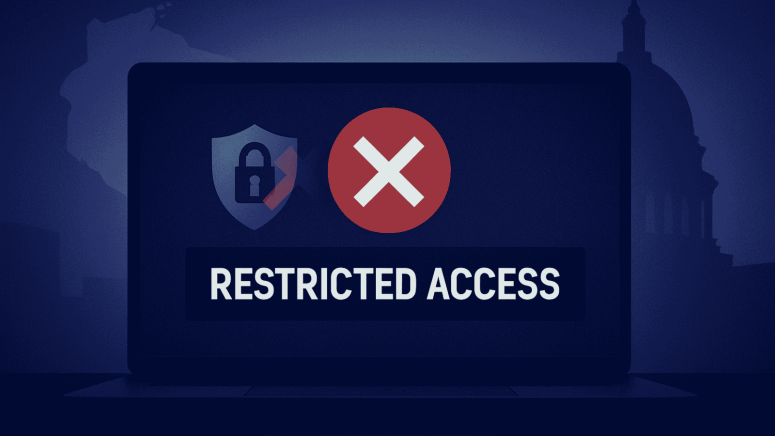
Wisconsin Lawmakers Propose Bill for VPN Ban as well as ID Checks on Adult Sites
- VPN Ban Proposal: Wisconsin lawmakers propose restricting VPN use on adult websites for age verification.
- Privacy Concerns: Critics warn the law could expose user data and weaken online privacy protections.
- Next Steps: Bills passed Assembly, awaiting Senate review amid debate on enforcement and digital rights.
Wisconsin lawmakers are moving forward with new proposals - Assembly Bill 105 and Senate Bill 130 that aim to regulate access to adult websites and ban Virtual Private Network (VPN). The measures require platforms to verify user ages and ban access for anyone using a VPN.
Supporters of the legislation claim it’s designed to protect minors from harmful online content. However, privacy advocates and digital rights groups argue the proposal would effectively dismantle online privacy protections for all users.
The bills, which passed the Wisconsin Assembly in March, now await review in the state Senate. If approved, the measures would introduce one of the strictest age-verification and VPN restrictions in the United States.
What the Bill Says
Under the proposed law, any website that “knowingly and intentionally publishes or distributes material harmful to minors” must verify a visitor’s age before granting access. This definition broadly includes any content lacking “serious literary, artistic, political, or scientific value for minors.”
The bills also require websites to delete verification data after a user is granted or denied access. Critics question whether such deletion would be properly enforced, pointing to past data-handling failures by tech companies that promised, but failed to securely erase personal information.
The most controversial element is the VPN ban. VPNs encrypt internet traffic and mask user IP addresses, providing privacy and security for journalists, activists, and everyday users. Lawmakers argue VPNs prevent age-verification systems from confirming users’ identities.
If enforced, adult websites would have to block all VPN connections or collect detailed identity information, both of which raise significant privacy and data security concerns.
Broader Implications and Reactions
Privacy experts say the proposal misunderstands how VPNs and the internet work. Detecting and blocking VPNs globally would be technically challenging and could affect users who rely on them for legitimate purposes such as remote work, cybersecurity, and safe browsing.
Other states, including Michigan, have already introduced similar ideas, suggesting a growing trend toward tighter control over online access. Critics warn these measures could expand beyond adult sites, setting a precedent for state-level monitoring of online activity.
Supporters argue the bills represent a necessary step toward child safety online. Opponents counter that the measures turn privacy into a liability, making encryption and anonymity appear suspicious.
What’s Next
The Wisconsin Senate is expected to review the proposals later this year. If passed, adult websites operating in the state will need to implement new compliance systems for user verification and VPN detection.
Digital rights organizations are preparing to challenge the bills, citing constitutional and privacy concerns. For now, the debate continues over how to protect minors online without undermining privacy and freedom for all users.














